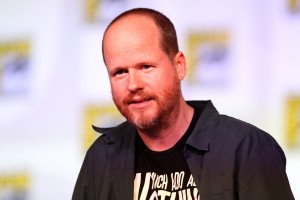June 10, 2013, by Emma Thorne
Whedon brings geek chic to Shakespeare
Joss Whedon’s eagerly-anticipated screen-adaptation of Shakespeare’s romantic comedy Much Ado About Nothing opens at cinemas this week. Culture, Film and Media student Leora Hadas looks at who’s likely to be the biggest draw at the box office — the Bard or the self-styled King of Geeks.
Joss Whedon has chosen an interesting way to bookend his year. The wider release of his adaptation of Much Ado About Nothing falls thirteen months after his The Avengers fought, exploded and wittily quipped its way to $600 billion at the box office. The two films couldn’t be more different. The Avengers is a comic book summer spectacular, bursting with color and action, heroes and monsters. Much Ado in the meantime is a black and white Shakespeare adaptation shot on a shoestring budget. Nonetheless, they have something important in common: they are both emphatically Joss Whedon films. The writer-director enjoys most credit for the former’s success and his name is a major selling point for the latter.
Visionary auteur
Selling a film as the product of a visionary auteur’s genius is an old and highly effective Hollywood trick, which has also found its way to television, video games and other media. A Joss Whedon film enjoys the attention of the fervent fans that have followed Whedon from supernatural bildungsroman Buffy the Vampire Slayer through space Western Firefly and superhero musical Dr. Horrible’s Sing-Along Blog. The audience debating which movie to grace with their patronage this weekend is promised Whedon’s distinct style of fast-talking witticisms, pop culture references, and a mixture of fantasy with interpersonal drama with themes of empowerment and community. This style fit in quite well with the flashy, intensely geeky Avengers, but in approaching Much Ado Whedon has to contend not only with a very different kind of source material, but also with the presence of an auteur with rather more prestige than himself. While Much Ado was written, directed and produced by Whedon, marketing it as a Joss Whedon film was nonetheless a challenge.
Strange, ridiculous people
Ironically, Whedon has approached this problem by referring Much Ado back to The Avengers, stressing the similarities between the two films whenever he can, and explaining their interdependence and he could not have done one without the other. According to Whedon, both the Elizabethan comedy and the superhero blockbuster are essentially “team movies” about strange, ridiculous people who find strength and comfort in each other. The themes would be familiar ones to Whedon’s fans. According to him, both Avengers and Much Ado are “the same kind of storytelling [he] is always doing”. The way that Whedon frames the film as well as his general interest in Shakespeare focuses on character dynamics, dialogue and humor, and he works to show that despite the gap of four hundred years plus the Atlantic, the important themes and aspects of the Bard’s writing are not very different from his own. Since Much Ado is really a romantic comedy that hinges upon the characters’ feelings and misunderstandings, it’s easy for Whedon to talk about these characters as adolescent, irresponsible and “super drunk” in a way that makes them not so different from Buffy’s brave band of high schoolers or the Avengers in their capes, tights and bickering. In combining this with professing a life-long love for Shakespeare and close fidelity to the original play, Whedon is able to market Much Ado about Nothing as both a Shakespeare film and a Whedon film – enjoying the prestige of both.
No comments yet, fill out a comment to be the first


Leave a Reply